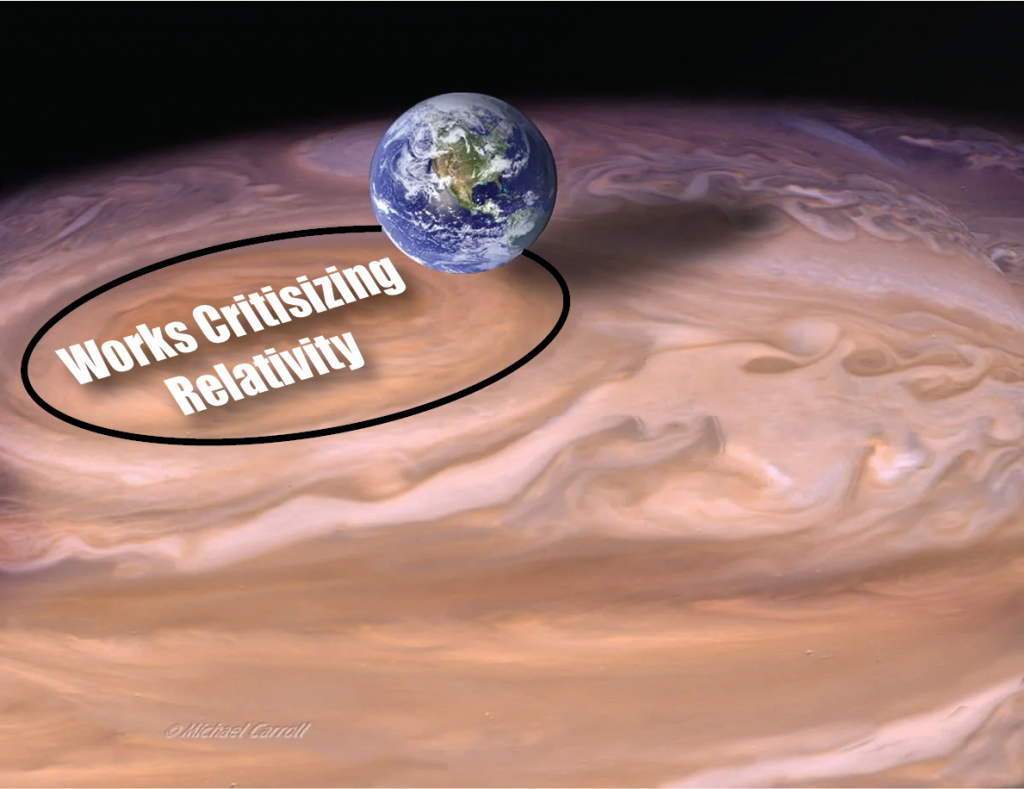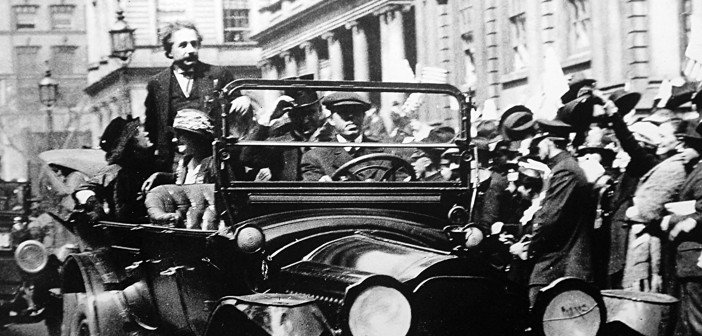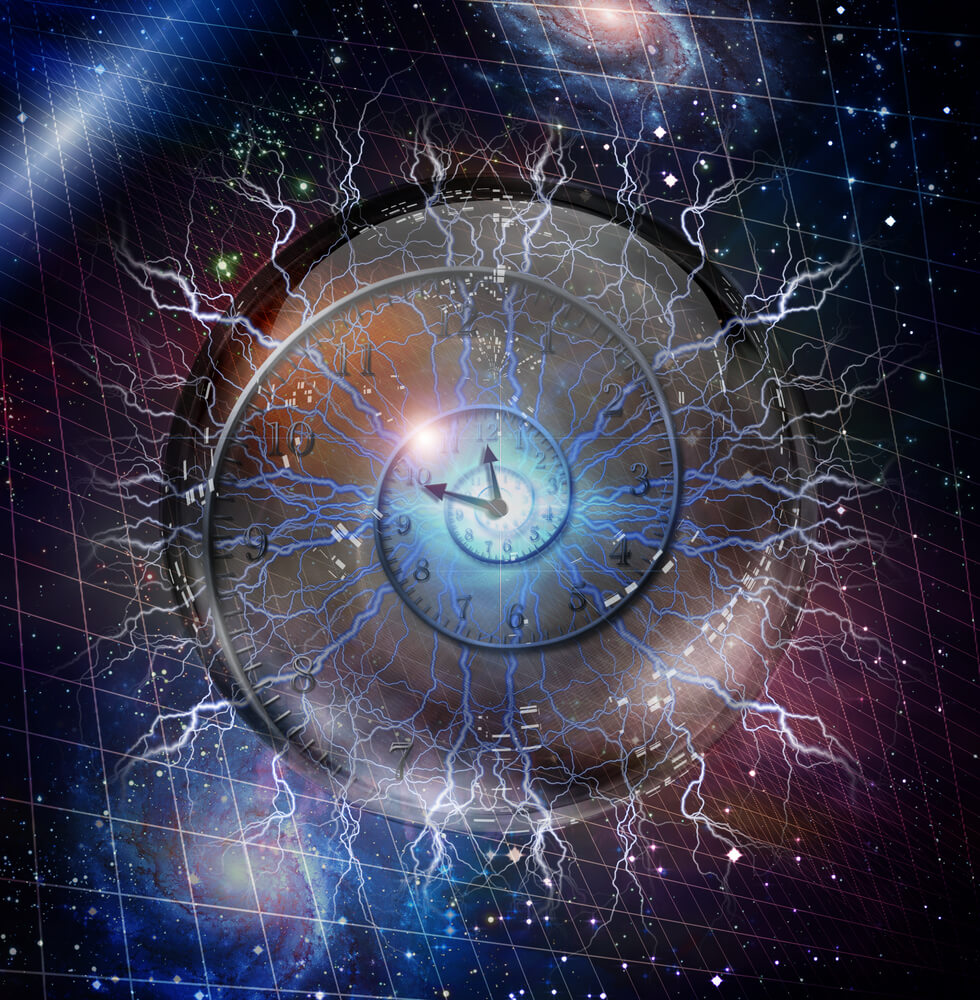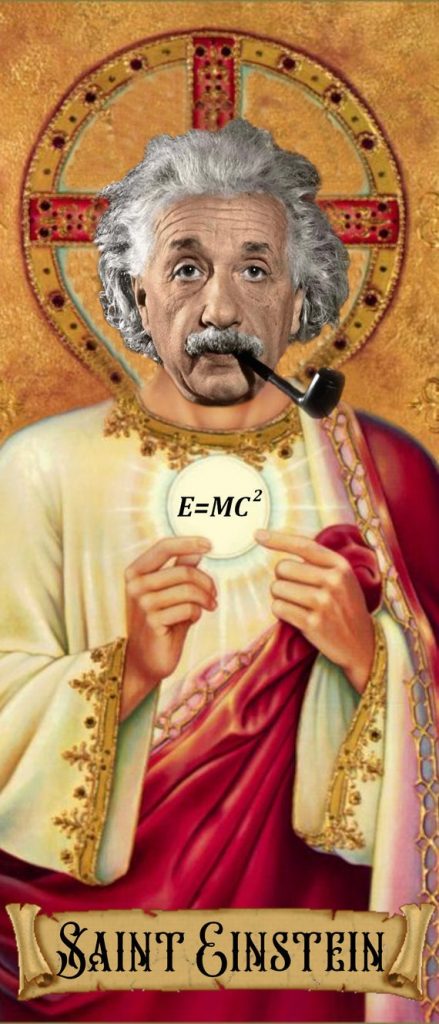Despite over a century of attacks by some of the greatest science minds on the planet against Einstein’s theory of relativity, Einstein’s fame remains at a god-like status. And despite the obvious problems with relativity, no one in mainstream science wants to touch the 800 pound gorilla in the room. To say Einstein is wrong in public will bring laughter from the mainstream science community and relegate you to the crackpot hall of fame.
It wasn’t until just days ago that I finally came to the realization as to why Einstein became so famous. After almost three decades studying arguments against relativity including spending over 8 years making the documentary “Einstein Wrong”, I finally pinpointed exactly why the public put Einstein onto a pedestal.
Most Disputed Theory
Dr. Glenn Borchardt, one of the greatest living scientists of our time, said to me on numerous occasions that Einstein’s theory of relativity is the most disputed theory in the history of science. And I agree. Having created a database of dissident science along with my good friend Greg Volk, we cataloged hundreds of books, and thousands of scientific papers, and I can safely say that there have been close to 3,000 formal attacks on the theory of relativity, both special and general and many of these attacks stand on very solid ground.
Think about that. Almost 3,000 formal scientific papers, journal articles, and books – all attacking the theory of relativity in one way or another. Whether it be the math, logic, or even the philosophy of relativity – there is more written material on the subject than one person can read in a decade. What other theory has been so disputed, so attacked? None that I can think of. Doesn’t that in itself raise a red flag the size of the storm on Jupiter that something, something real may be really wrong with relativity?

Over the decades, I have known many great minds outside mainstream science that had no opinion or who actually disagreed with the premise that Einstein’s relativity was wrong or at least greatly flawed. But during that time, I have seen dozens of people and an entire organization go from accepting Einstein’s theory of relativity to actively criticizing it.
Changing Your Mind
One example super close to home is that of my father. I have been working scientifically with my father for almost 15 years and despite playing a leading role in my documentary film Einstein Wrong, he didn’t subscribe to the idea that Einstein was wrong for most of that time. In fact, when the film was ready to debut back in 2013, I asked him point blank: “Do you believe Einstein is wrong”. He responded: “I really don’t have an opinion about that either way. I know that sounds strange with me being in a film called Einstein Wrong. But that’s the truth”. Even though that infuriated me, he was right. He shouldn’t just accept it even though he saw arguments against it all around him for years.
The good thing about my father is that he was, and still is, a natural skeptic. He doesn’t believe something just because someone he trusts tell him something. That is the correct attitude to have in science. Aristotle said:
It is the mark of an educated mind to be able to entertain a thought without accepting it.
Aristotle
But then in 2016, my father calmly presented a paper entitled “Special Relativity is Not Needed” at one of our recent science conferences. Here he is introducing this talk:
The abstract from his paper read:
Many people have proved to themselves that Special Relativity is wrong. They know about the paradoxes, they know about the bad assumptions, they know about the mathematical errors. And yet it is still hard to provide absolute proof that it is wrong. After all, there are many others that are proving it right. This paper describes two things that proved to me that Special Relativity is wrong. The model is wrong and the interpretation of what each observer sees is wrong. My conclusion is that the transformation of length, time, and mass are not needed.
Bob de Hilster, CNPS 2016 Proceedings
In that abstract, my father states something that is truly profound when it comes to learning and teaching science: making up your own mind. He says “This paper describes two thing that proved TO ME that special relativity is wrong“.
Changing an Entire Groups Mind
Another even more striking example of making up one’s mind that Einstein’s theory of relativity is wrong, is that of the dissident group, the Electric Universe. Around a decade ago, our organization the NPA and the Electric Universe held several conferences together one, at the University of Maryland and the other in Albuquerque New Mexico. At the first conference, I quickly learned from the leaders of the group, David Talbott and Wal Thronhill that the Electric Universe organization as a whole did not subscribe to the notion that relativity was wrong. In fact, their perception of OUR group was that it was primarily an “anti-relativity” group.
Fast forward almost ten years, and you now find many videos, even some by Wal Thornhill himself stating that relativity is an extremely flawed theory that must be disregarded. In this case, an entire organization took the time to listen to some people in our group who gave talks about the problems with relativity, combining it with their own investigations into relativity and they went from a group who supported or ignored relativity, to actively criticizing and stating uncategorically that it is wrong.
I greatly admire the Electric Universe for doing their “due diligence” when it comes to relativity. The fact is: if you take the time to truly investigate relativity, any critical thinker quickly finds conceptual problems with Einstein’s theories.
Einstein’s Real Popularity
But why did Einstein become so popular? Why did he gain rock-star status? How is he in such a position that no one questions him and for many people, have come to deify Einstein as one of the great scientific geniuses of all time, despite the glaring problems?

Universal Curiosity About the Universe
Every human being has some curiosity about the universe around them. Anyone who has looked up into the night sky has to ponder the universe in which we live and how it all works. How can light travel so far? How does gravity reach so far into space?
Take magnets for example… For everyone who has seen magnets repel and attract with no apparent physical connection, there is genuine curiosity about what is pushing or pulling these pieces of metal together or apart with great force.
The pull of gravity the keeps us on the ground and the light all around us that allows us to see, are concepts every human understands intimately. Life itself depends on these most basic phenomena. Each is important and curiosity of what each of these things really are, are inherent in almost every human who has ever lived.
If someone were to tell us something about the relationship between gravity and light that was never thought of before, that would be something very profound to the general population. That would be something unforgettable and earth shaking to every human being on this planet.

And that is EXACTLY what happened in 1919. During the full eclipse of the sun, the English astronomer Arthur Eddington announced to the world that Einstein’s prediction that gravity bent light was proven during the 1919 full eclipse in Brazil. And not only did the science world take notice, but the general public as well. Imagine yourself during that time. After all, gravity and light are so ingrained into every aspect of human experience that the idea that the two were intimately linked, must have been earth shattering to all.
Instead of some complicated equation, the idea that gravity bent light was easy to understand by anyone. Before Einstein, these two important concepts were important but distinct. But now, a human being predicted that gravity would bend light and it was proven so.
This announcement in 1919 captured the hearts and minds of all humans and Einstein became an instant celebrity. And even though his famous equation E = mc^2 and the special theory of relativity was postulated over ten years earlier, it wasn’t until Einstein took two of the most intimate aspects of the universe and predicted a simple relationship between the two, that the entirety of the human race took notice.
Einstein became a superstar. A rebel thinker. After all, until Einstein, the light / gravity relationship was never observed, let alone predicted. Einstein was the man who predicted it and when he did, he became a god and everything he touched was gold.
Completing the Picture
Once the public knew about his general theory of relativity, they clamored to know more. Soon they discovered special relativity predicted that not only could we not go faster than the speed of light, but that time, space, and mass itself were not constant. The public couldn’t get enough. It all seemed like we lived in a new and strange universe which we still could not comprehend but could predict. Even artists took note as the clocks of Salvador Dali gave us a visualization of Einstein’s new universe where nothing was constant and everything was relative.

It took me from the early 1990s to June of 2020 for me to realize that the real reason for Einstein’s fame was his ability to connect to the basic scientific curiosity of every person who has ever thought about the universe and how it works. It wasn’t his quirky German accent. It wasn’t his lovable character and humble mannerisms. It wasn’t even his hair.
We humans crave answers to the question “how does this universe really work?” What is gravity? What is light? And Einstein linked two of them together in a way that satisfied our great need to know more about gravity and light and aspects of the universe around us.
The answer to Einstein’s popularity was his ability to directly connect to our most powerful scientific emotion: curiosity.

And it’s been over 100 years since Einstein’s prediction launched him into superstardom and nothing since – neither quarks, strings, quantum mechanics, or even the god particle has captured anything close to what Einstein captured when it comes to the public.
Conclusion
Even though I now have a viable explanation for why Einstein so captivated the general public back in 1919 and still does to this day, he is fact, still wrong. If you take the time to look at Einstein’s theory and divorce yourself from the fantasy world of a light speed limit, bending space, and bending time, you will quickly find that even though Einstein’s new world is extremely intriguing and based on our intuitions of gravity, light, and time, it is a theory that is wrought with mathematical, physical, and philosophical problems. And that quickly takes his theory of relativity from the truly fascinating, to the truly impossible which must be abandoned in favor of new ideas that will allow use to finally move science forward.
And that won’t happen until someone else comes along with a better model that captivates the same scientific curiosity of the human race. And that my friend, may be just around the corner! After all, we have some of the greatest minds today outside of mainstream science working on exactly that.
Stay tuned…




